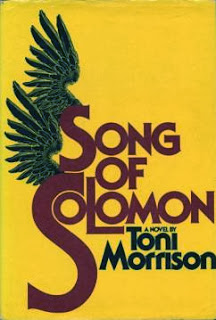And here we
are…..on the last day of 2013, and this would also be the last post of Book Kaleidoscope 2013, as well as my last post of year 2013. It has been another
great year in term of reading, I have read 54 books; 34 of them are classics
(63% of my reading is of classics…yay to me! :D). Most of the books are great,
I have conquered (at last) two chunkster I’ve been dreading all these few years:
War and Peace and Moby Dick, but both are proved to be great books. It’s quite
difficult to pick only 5 from these tough candidates, but at last I came to
this…
5. Saint Joan by George Bernard Shaw
I am very
grateful that I decided to read one of Shaw’s plays: Saint Joan.
It is so inspiring and enjoyable. Joan’s character is lovable; she is far away
from your image of a saint (well, at least mine :D). She is naïve, witty,
enthusiastic, and very brave. Her lines are very deep, inspiring and touching.
The other characters are interesting too. In fact, this is the best play I read
this year, and becomes my favorite after Julius Caesar.
4. David Copperfield by Charles Dickens
David Copperfield is
the most intense novel of Charles Dickens I have ever read so far, and
certainly becomes my new favorite. Dickens wrote it from the heart, he seems to
pour down his childhood burden onto this book. I could sympathize with David so
much, it feels like reading Dickens’ diary. It is well written too, with not
too much blabbing like in Little Dorrit, for instance. I would love to reread
it again some other time….
3. The Great Gatsby by F. Scott
Fitzgerald
I have a
feeling I could never completely ‘move-on’ from The Great Gatsby.
This is the second time I read it, and it still amazed me. I love especially
Fitzgerald’s beautiful narration and his metaphors (a lot of it!). I think this
novel would never bore me, and I will love to read it every two years or so… :)
2. Moby Dick by Herman Melville
How can we
not love Moby Dick?
It is epic, adventurous, and makes you think at the same time. The
Shakespearanish style Melville sometimes used makes it more lively and
colorful; and when Moby Dick finally appeared, it is epic and unforgettable.
Captain Ahab’s character only adds the uniqueness of this novel.
1. La Bete Humaine by Emile Zola
If you are a
follower of my blog, or have been reading my posts often, you would not
surprise to learn what novel—or rather from which author—would claim the first
place in my bookish year of 2013 (by the way, his novel was also my favorite for 2012!). He is, of course, Émile Zola. And La Bete Humaine is another intense and sharp novel from Zola. It speaks a lot about human nature,
and how modernization is like two sides of a coin; it brings prosperity on one
side, but also moral corruption on the other. So, it’s not because Zola is my
favorite author, but because this book is really awesome, that I awarded La
Bete Humaine as…..
What are
yours? Share in the linky below!








































